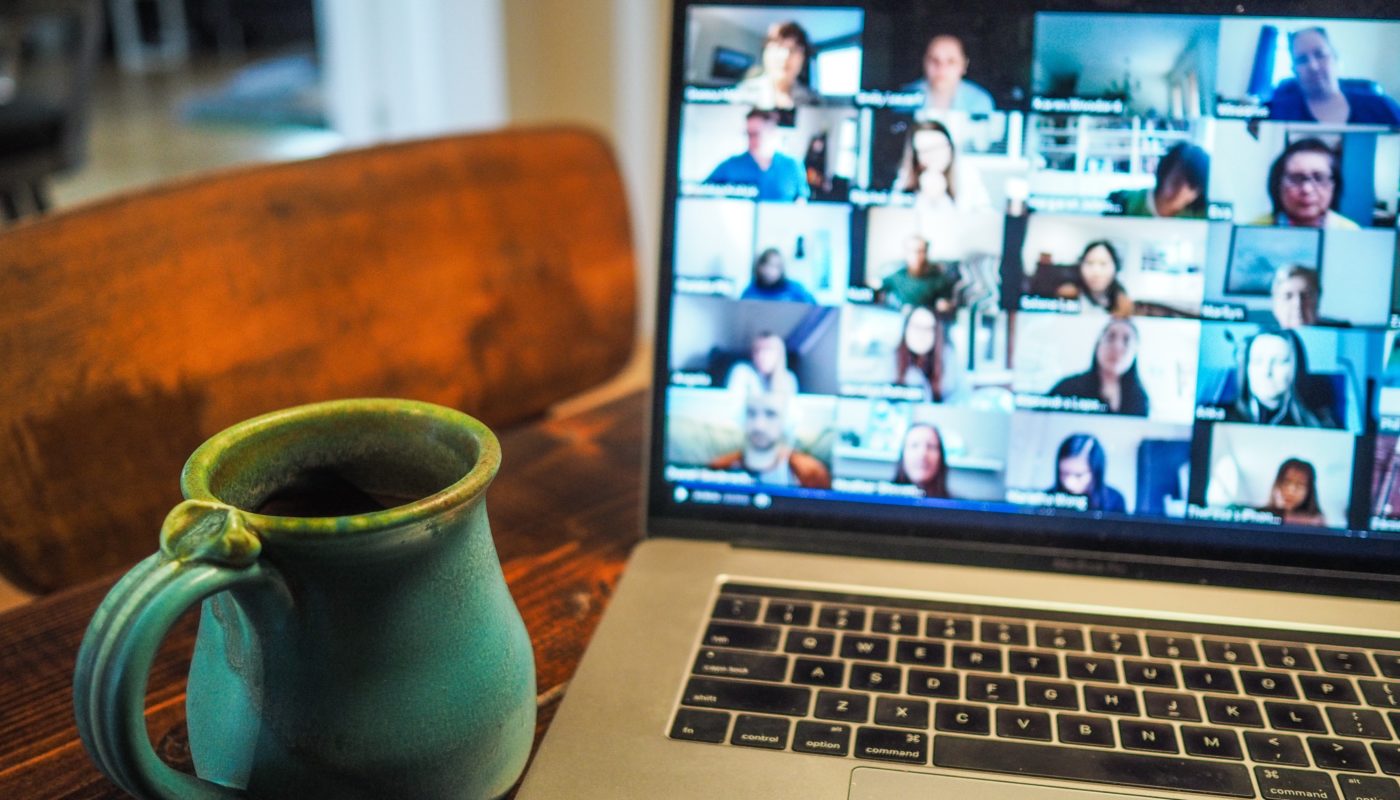The COVID-19 pandemic isn’t doing its part to set college students up for success this semester.
It has been widely documented that student engagement during the first six weeks of the semester are crucial to ensuring students’ academic and social success; as a result of the coronavirus, Capital students have been relegated to remote learning for two-thirds of this pivotal period.
Fortunately, Capital’s leaders in the Student and Community Engagement Office and in student organizations across all disciplines have been preparing to foster community in the age of Zoom. Armed with their Engage pages and a full calendar of creative virtual events, here’s what the guiding forces behind Capital’s social scene have to say about getting connected from home.
Office of Student and Community Engagement
When it comes to programming on campus, Abbey Rutschilling is the person to see—as the Program Director for the Student and Community Engagement Office (SCE), she is directly involved with developing the guidelines for campus events and fielding questions from leaders of student organizations.

According to Rutschilling, the SCE’s student leadership team and professional staff spent the summer painstakingly developing two plans for fall semester: one for an in-person, socially distanced return to campus, and the other for a virtual setting. Having online Summer Orientation sessions helped to prepare for the Virtual Welcome Weekend, she remarked—learning and adapting as we go seems to be the name of the game these days.
Rutschilling identified the biggest roadblock to the success of virtual events to be Zoom fatigue. Since most students spend their days staring at their laptops in order to attend class, they might not be too enthused about the prospect of more screen time. In an effort to address this, the SCE is hoping that events might transition to a hybrid format upon students’ return to campus, although maintain a virtual option is important to reach those who may not feel comfortable meeting in-person.
Ultimately, Rutschilling thinks that the most important thing for students to remember is that their friendships will, hopefully one day soon, exist outside of the virtual sphere. Students can, “…begin to foster and create new relationships now in the first four weeks and then build upon them once we return to campus.”
Activity Management Programming
Kelsey Kitchel is the president of Activity Management Programming (AMP) at Capital, the student organization known ubiquitously across campus for their hosting of major events, such as Exam Treats, Lip Sync, Cap Jam, Back to Cap Week, and so many more.
As one of the cornerstones of student engagement on campus, AMP had a high bill to fill going into the first four virtual weeks of the semester. Like the SCE, Kitchel and her team had prepared a normal, hybrid, and virtual calendar for the semester; this summer preparation helped the last-minute switch to virtual occur seamlessly.
During Back to Cap Week, Kitchel notes that attendance was a bit lackluster at some of the events. Rather than being discouraged, however, AMP used B2CW as a baseline that, “…helped us to realize what virtual events Capital students are interested in attending and what will help draw them to those events,” Kitchel remarks.
As virtual bingo was the biggest attraction, AMP scheduled Trivia Thursdays for the final three weeks of remote learning. Next Thursday at 9:00 p.m. will be the final week for trivia, with the theme of American History. RSVP for your chance to win an Amazon gift card and a Dyson vacuum on AMP’s Engage page.
Interfraternity Council
Josh Miller is the president of Cap’s Interfraternity Council (IFC), the governing body for social fraternities.
For Greek Life organizations, which are community-focused and typically met every week in the pre-pandemic world, operations have changed majorly. In addition to the impact felt in the running of general business, the remote ‘First Four’ has fallen right at the beginning of formal recruitment season for fraternities and sororities.

Miller remarks that the IFC hopes to, instead of conducting recruitment entirely virtually, return to a hybrid experience once students are back on campus. Recruitment for fraternities is focused around finding the best “fit” for each potential new member, and Miller says that remote events limit this goal. Through a computer screen, it is difficult for fraternity members to get to know the personality of each interested newcomer, and on the flip side, it’s challenging for candidates to see the unique characteristics of each fraternity.
In spite of these limitations, however, Miller still asserts that, in terms of the student experience, “…I truly believe that [fraternity life] is one of the best ways to create a community as a college student.”
If you’d like to get involved with recruitment for the IFC, it isn’t too late to sign up! Just fill out the interest form located on Engage, and be on the lookout for upcoming events hosted by the individual fraternities.
Embrace
As the president of Embrace, one of Capital’s on-campus Christian groups, Elyse Horn has had a full schedule facilitating the transition to an online worship experience. The group has managed to make things work with the help of University Pastor Drew Tucker, who defined Embrace’s commitment to students as one that placed the importance of worship as equal to academics.
As Horn states, Embrace has, “…been able to keep integral elements…like conversations and prayer requests…our services are more accessible than ever.” Of course, it has been impossible to preserve the candle-lit atmosphere of Thursday evening worship, but Embrace has adopted new rituals, preserving the sanctity of services and, above all, maintaining an accepting environment.
In terms of community building, Horn believes that the most important aspects are the relationships built in small group settings; in order to fit this need on campus, Embrace offers an LGBTQIA+ Group and a Welcome Small Group, among other group and individual meeting offerings.
Embrace is currently offering virtual worship every Wednesday morning at 10:00 a.m. and Thursday evening at 9:09 p.m., and the links are available through Engage. Once students return to campus, Horn established that, in addition to safe and socially-distant worship events, virtual options would be made available for all students to participate.
SOLA
Cynthia Carroll is the president of the Students of Latinx Affinity (SOLA) on campus, an organization that serves an important role in the social and cultural education of all students. Although a virtual environment may not be the ideal setting for meaningful conversations about discrimination and privilege, Carroll believes that the organization’s mission can be accomplished.
One of the key factors that contributes to SOLA’s success is its partnership with Capital’s Office for Diversity and Inclusion (ODI). Support from the ODI and SCE allowed Carroll and her team to easily adjust their event plans to fit into a virtual setting. So far, SOLA has hosted an event each week during the ‘First Four,’ and the group plans to continue this pattern of extensive engagement into in-person events later in the semester.
When planning a virtual event, Carroll says that SOLA’s executive board focuses on, “…uniting and including all people and giving everyone an opportunity to learn and appreciate Latinx culture.”
SOLA has meaningful events planned to foster community and build awareness of Latinx culture. The organization is hosting a virtual Movie Night celebrating Latinx Heritage Month next Friday, beginning at 10:00 p.m.


